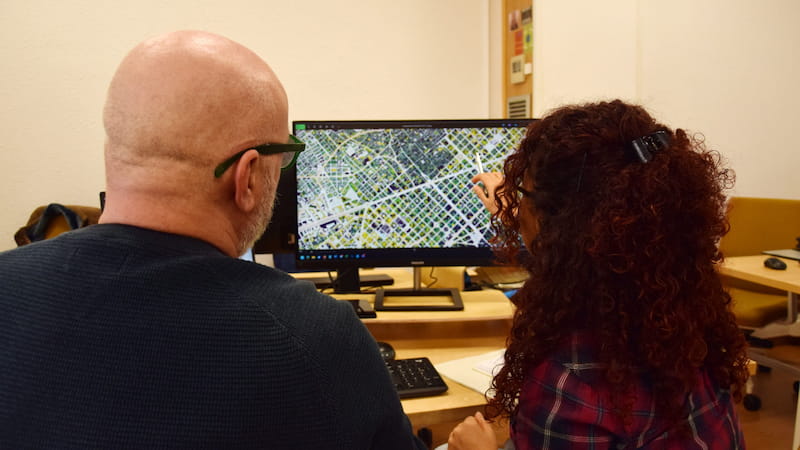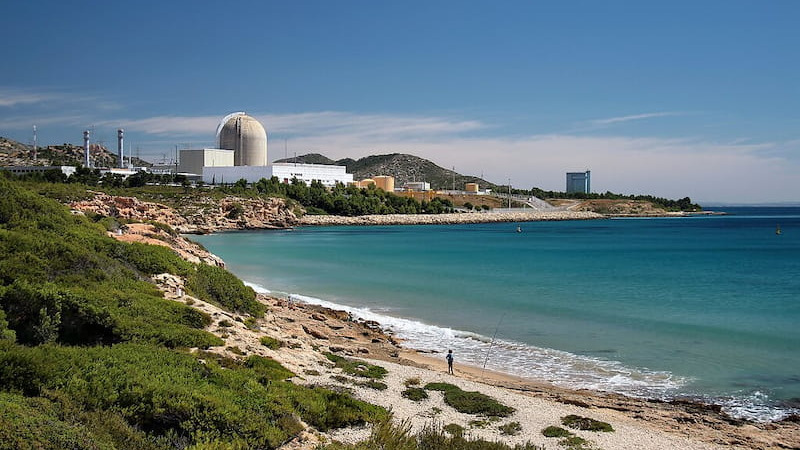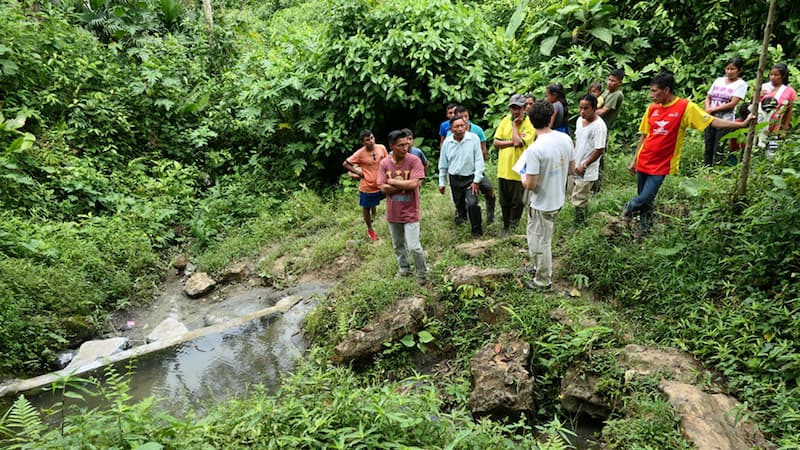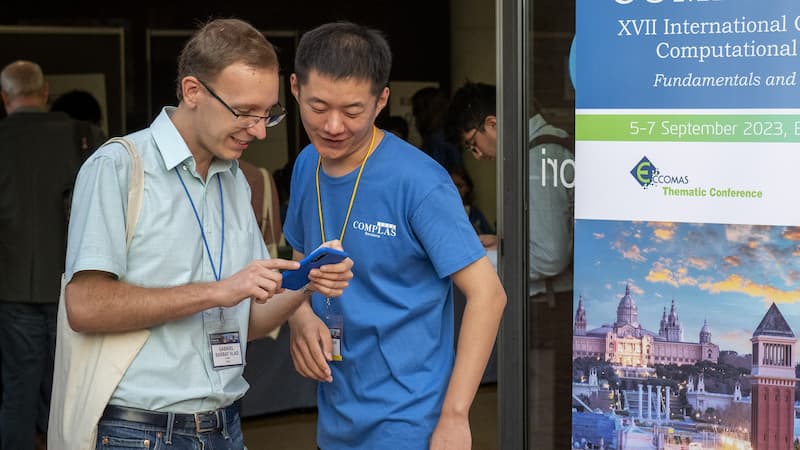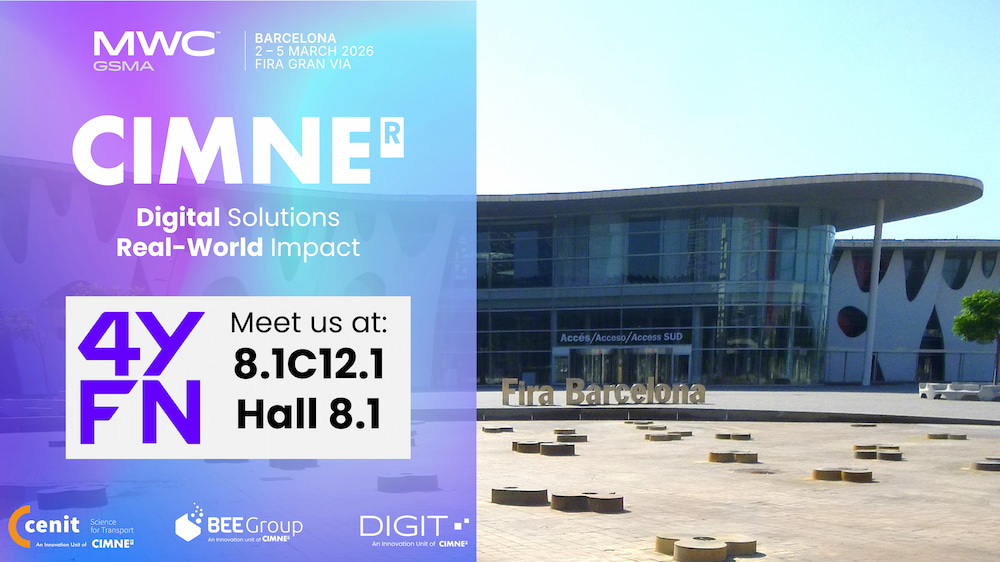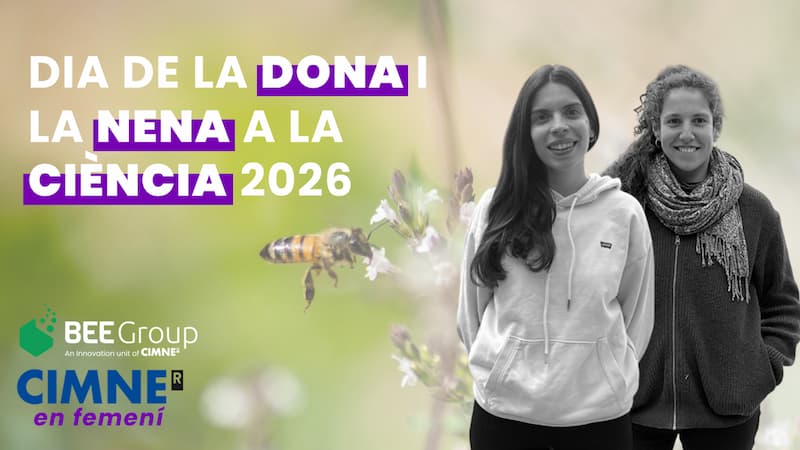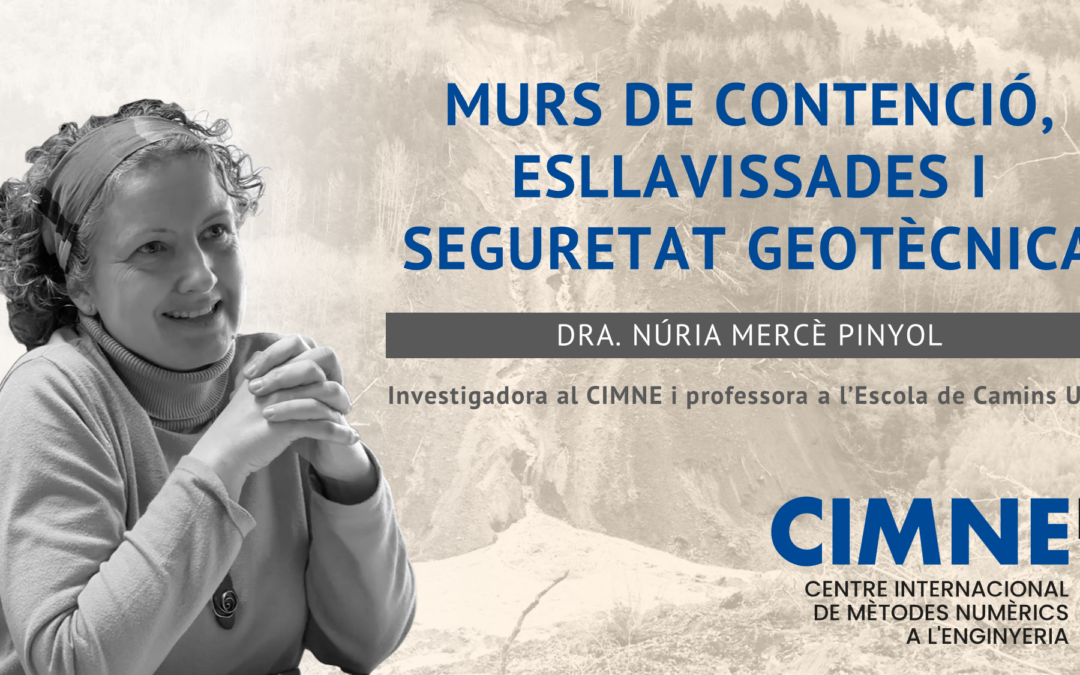
We interview María Juliana Knobelsdorf. She is a Civil Engineer with a doctorate in Civil Engineering by the Technical University of Catalonia (UPC), and a postdoc of the 'Torres Quevedo' program (2007-2008) of the Ministry of Science and Innovation. For more than 20 years she has worked in physicochemical analysis laboratories of water and soil characterization tests.
During the last ten years, she has carried out the support management of the research activity of the Director of the UPC Geotechnical Laboratory.
She has recently incorporated to CIMNE to give support to the projects hosted in the geotechnical laboratory of the centre.
Your role at the laboratory is very multidisciplinary. Could you let our know about the day-by-day in a geotechnical laboratory?
The geotechnical laboratory is specialized in experimentally research of coupled thermal, hydraulic, mechanical and chemical behavior of soils, rocks and other geomaterials.
The laboratory's widely recognized activity is focused on multiphysical coupled processes and innovative multi-scale experiments.
On the one hand, we work with radioactive waste management leader companies, such as ONDRAF/NIRAS (Belgium), NAGRA (Switzerland), IRSN and ANDRA (France), and OBAYASHI Corporation (Japan). But we also develop experimental prototypes that are used by many research centres worldwide (Brazil, Mexico, USA, Australia, Germany, Poland, Italy, United Kingdom, among others).
What are your tasks in the laboratory?
My work is to support and collaborate directly with the director of the laboratory in order to manage the infrastructure and the communication with the staff (doctoral students, postdocs and technicians) who work in the laboratory.
Research resources are not infinite. So, controlling and managing these resources in order to move forward is very important. I am there to help the researchers with their needs and manage those valuable resources.
Likewise, I support researchers when they require the purchase of materials or equipment that arrives from other countries. Finding out the steps to follow, establishing contacts to manage the specialized transport, etc. In general, my function is to be a bridge between the researcher and the corresponding department of the UPC or CIMNE, depending on the project.
I am also in charge of the purchasing management associated with CIMNE research projects and I am responsible for the management and coordination of the transfer of experimental prototypes designed in the Geotechnical Laboratory for different research centres, like Polytechnic of Turin (Italy, 2006), TAMU (USA, 2019), or the University of Cambridge (UK, 2020).
In my position, I have to be aware of calls for infrastructure support by Barcelona School of Civil Engineering, applying those associated with laboratories, and seeking better use of resources. These could be, for example, grants for the optimization of spaces, grants to improve the safety of students in the laboratory, grants for the renovation of obsolete equipment, etc.
I have also developed the internal/external fees for one of the Scientific-Technical Services offered by the UPC for carrying out mercury intrusion porosimetry tests. This would allow us to have maintenance resources for the different infrastructures and equipment. The objective is to incorporate new experimental services that allow preventive maintenance of the key laboratory equipment.
Profiles like yours, which mix management and research end up being strategic for the proper functioning of a laboratory. What has been your path to become a Research Support Personnel?
I have been working side by side for many years with an internationally renowned researcher such as Enrique Romero, director of the geotechnical laboratory and current full professor at the Technical University of Catalonia and member of the Geomechanics group of CIMNE.
Geotechnics is not my area of initial training. I did my PhD in the area of biological wastewater treatment. It was a fundamental experimental research developed in the School's Environmental Engineering laboratory.
Before finishing my thesis, I had the opportunity to work in the geotechnical laboratory, giving support to the performance of experimental tests and the development of reports for different important projects with companies, such as the Barcelona Port Authority (1999-2000), NAGRA-Switzerland (2001- 2005) or Obayashi Corporation-Japan (2012-2017). So, this was my entry into the world of geotechnics, getting involved in soil tests, helping with some experimental setups, processing data and writing reports on the experimental results.
Over the years that I have been working in laboratories, I have understood the importance of developing prototypes, doing their correct maintenance and having adequate maintenance of the general infrastructure of the laboratory. I was able to see what is needed in a laboratory, the resources required and the needs of the researchers. All this makes up my initial technical part, which has served me to later imbricate it in the management part that I developed over time.
“The workload in the geotechnical laboratory and the number of researchers (doctoral and postdoctoral students) has increased over the years”
I have also understood the importance of managing the available resources to develop experimental research and the needs of researchers.
The workload in the geotechnical laboratory and the number of researchers (doctoral and postdoctoral students) has increased over the years. There are more associated projects, and it makes it more necessary to have a person in charge of supporting the management and control of the associated resources for each project. Having technical support for the research within the laboratory also allows researchers to focus their efforts on research.
In 2019, I had the opportunity to collaborate with Professor Ignacio Carol within the MECMAT research group, taking charge of research management, both economic and project management. This collaboration allowed me to know the requirements and eligibility within the justification of projects, the payment control and the data and the documentation required by national projects. In this period, I have also attended a course on Economic management of research projects given by the Professional Development Service of the UPC.

Since 2011, I have been in charge of managing the research activity (articles, congresses, reports, projects) of Enrique Romero and other professors and researchers, through the DRAC (UPC computer application), updating their curriculums every year, in order to facilitate and increase the value of research and enhance the visibility of the researchers.
To sum up, if you ask me about the itinerary followed to be a Research Support Personnel, basically I can tell you that it is the result of the experience of working in DECA Geotechnical groups such as MSR (Soil and Rock Mechanics) and MECMAT (and Mechanics of Materials). I have been involved in seeking solutions to specific needs: I have asked here and there, contacting the UPC UTGAC staff or the CIMNE Accounting and Finance or Projects staff, always trying to bring good management and support to the investigation.
What are the incentives of not sticking only to the field of research?
I like to help and to do follow-up to see how the research progresses. The laboratory grows and is recognized internationally for the excellence of the work carried out by our researchers. To be a part of the group, contributing my grain of sand to make the machinery works correctly, is of great satisfaction.

